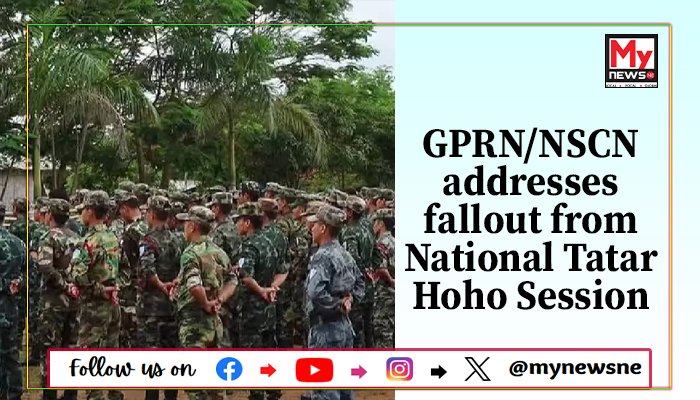Nagaland: GPRN/NSCN Leadership Addresses Internal Discord Following Crucial National Tatar Hoho Session
Northeast Desk, 2nd September: The leadership of the GPRN/NSCN has issued a press statement addressing the fallout from the extraordinary session of the National Tatar Hoho held on April 21, 2024, which has led to significant internal discord and public controversies involving senior leaders. The session, deemed essential for the survival of the organization’s governance, has resulted in a notable rift within the GPRN/NSCN, causing concern among its supporters.
President ‘Gen.’ (Retd) MB Neokpao Konyak and Ato Kilonser Alezo Venuh explained that despite substantial efforts to mitigate the situation, the session’s outcome has weakened public trust—an essential component of the Naga political movement. This internal strife has led to the loss of a significant faction within the organization, further complicating the group’s efforts to maintain unity and direction.
The fallout has also caused disappointment among key supporters, including apex Naga Civil Societies, Gaon Buras (GBs), Tribal Hohos, and leaders who have consistently backed the Naga cause. However, the GPRN/NSCN leadership reaffirmed their unwavering commitment to the Indo-Naga issue, highlighting the importance of the Agreed Position negotiated with the Government of India (GoI).
The leadership emphasized the significance of the ‘Status Paper,’ a document produced from these negotiations, which they claim represents the collective will of all Nagas, including those in Manipur, Arunachal Pradesh, and Assam. The GPRN/NSCN stressed that this agreement is “irrevocable and irreversible,” underlining its importance in the ongoing political dialogue.
The statement also recalled the fresh ceasefire agreement signed on April 27, 2012, following the impeachment of former chairman S.S. Khaplang. This agreement, signed by then MHA Joint Secretary (NE) Shambu Singh and GPRN/NSCN representatives, marked a decisive moment for Naga national workers, reaffirming their commitment to a peaceful resolution of the conflict.
In conclusion, the GPRN/NSCN leadership reflected on the historical significance of the Naga Self-Determination agenda set on January 10, 1929, which continues to inspire Naga nationalism despite ongoing challenges. They expressed hope that the Naga people will continue to support the Working Committee of the Naga National Political Groups (WC, NNPGs) in their pursuit of an honorable political solution with the Government of India.

